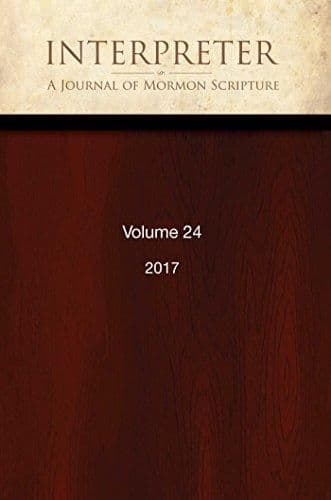Journal
“They Were Moved with Compassion” (Alma 27:4; 53:13): Toponymic Wordplay on Zarahemla and Jershon

Title
“They Were Moved with Compassion” (Alma 27:4; 53:13): Toponymic Wordplay on Zarahemla and Jershon
Publication Type
Journal Article
Year of Publication
2016
Authors
Bowen, Matthew L. (Primary)
Journal
Interpreter: A Journal of Latter-day Saint Faith and Scholarship
Pagination
233-253
Volume
18
Abstract
As in Hebrew biblical narrative, wordplay on (or play on the meaning of) toponyms, or “place names,” is a discernable feature of Book of Mormon narrative. The text repeatedly juxtaposes the toponym Jershon (“place of inheritance” or “place of possession”) with terms inherit, inheritance, possess, possession, etc. Similarly, the Mulekite personal name Zarahemla (“seed of compassion,” “seed of pity”), which becomes the paramount Nephite toponym as their national capital after the time of Mosiah I, is juxtaposed with the term compassion. Both wordplays occur and recur at crucial points in Nephite/Lamanite history. Moreover, both occur in connection with the migration of the first generation Lamanite converts. The Jershon wordplay recurs in the second generation, when the people of Ammon receive the Zoramite (re)converts into the land of Jershon, and wordplay on Zarahemla recurs subsequently, when the sons of these Lamanite converts come to the rescue of the Nephite nation. Rhetorical wordplay on Zarahemla also surfaces in important speeches later in the Book of Mormon.
Subject Keywords
Bibliographic Citation
Terms of use
Items in the BMC Archive are made publicly available for non-commercial, private use. Inclusion within the BMC Archive does not imply endorsement. Items do not represent the official views of The Church of Jesus Christ of Latter-day Saints or of Book of Mormon Central.